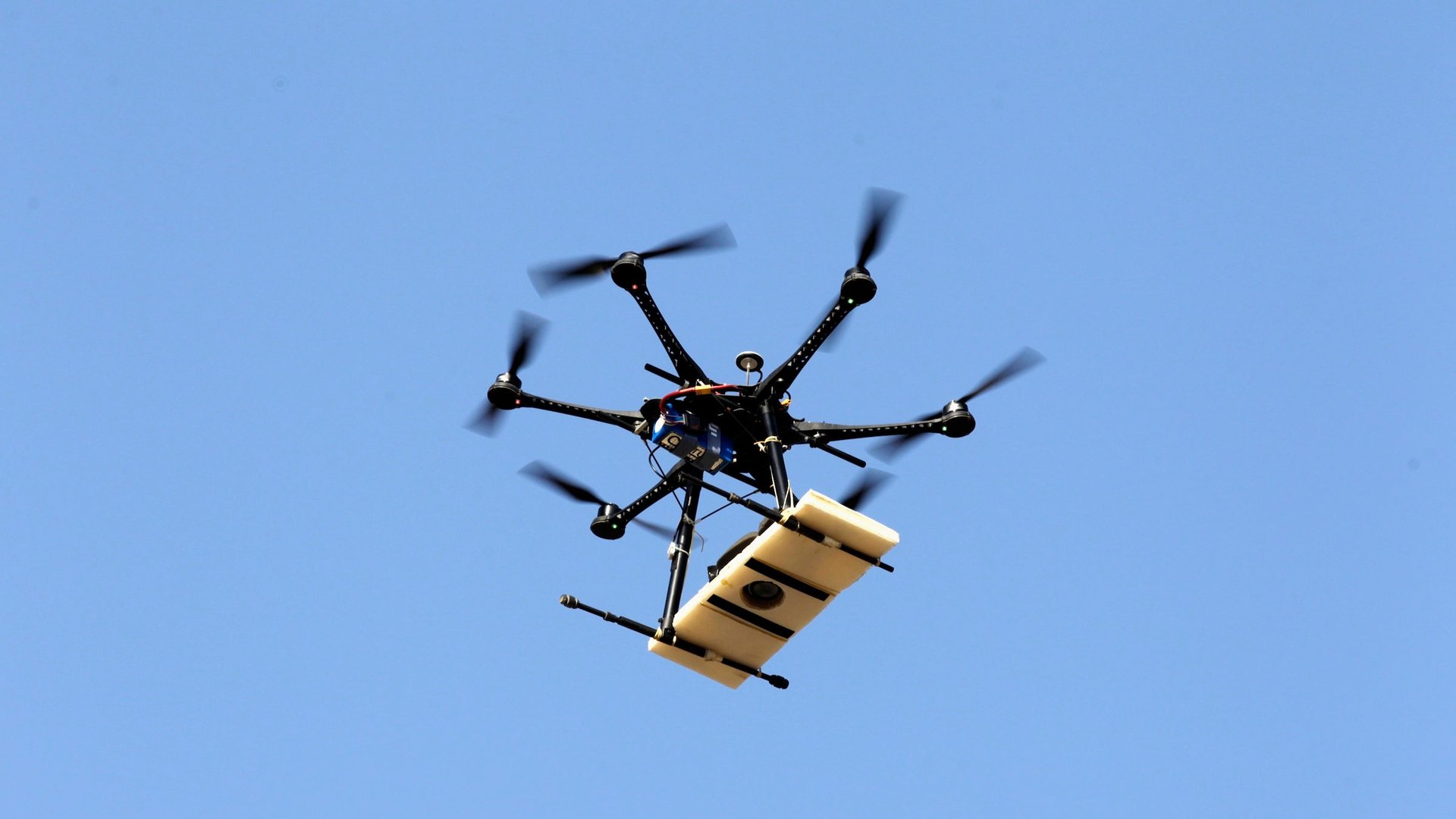Samsung will make its smartphone chips available to developers of wearables, drones, and more
Smartphones, smart TVs, smart refrigerators, smart washing machines. Samsung Electronics wants to put a chip in everything it makes—and in things made by other companies, too.


Smartphones, smart TVs, smart refrigerators, smart washing machines. Samsung Electronics wants to put a chip in everything it makes—and in things made by other companies, too.
The world’s largest smartphone maker today debuted a new series of all-in-one chip modules, called Artik, that help developers build internet-connected products, including wearables, faster. “Our point of view is, if it’s not connected, it’s not really relevant to your lifestyle,” said Yoon Lee, Samsung’s vice president of consumer electronics, at the Internet of Things World conference in San Francisco.
Packing in a processor, flash memory, Wi-Fi, Bluetooth, and encryption, the chip modules come in three sizes and range in price from less than $10 to about $100 (depending on the order volume):
- Artik 1 is the smallest of the three, measuring 12mm by 12mm—roughly the size of a lady bug—and is designed for small, low-powered applications.
- Artik 5 comes with a 1 GHz dual-core processor and on-board flash memory, dynamic random access memory (DRAM), and video encoding and decoding. It’s meant for use in drones and high-end wearables.
- Artik 10 is the largest of the modules, with a 1.3 GHz processor, 16GB of flash memory, and 2GB of DRAM, as well as 1080p video decoding and encoding. This is the same chip module inside Samsung’s smartphones, according to Samsung Electronics president and chief strategy officer Young Sohn.
The chips, which will be used in Samsung’s own connected products, will support multiple operating systems and cloud platforms. In January, Samsung CEO Boo-Keun Yoo declared that most of the products the company makes in five years—and all of them by 2020—will be connected to the internet.
Samsung’s chip business is helping offset its slowing smartphone sales. In the first quarter, overall profits for the company fell 40% in the first quarter, dragged down by its mobile division. All the while, its semiconductor business saw a 50% rise in earnings year over year. According to Gartner, Samsung is the second-largest semiconductor supplier, with 10.4% market share behind Intel’s 15%. In 2014, Samsung’s semiconductor revenue increased 15% to $35.3 million worldwide. Samsung also reportedly won a contract in April to manufacture the A9 processor chip for Apple’s upcoming iPhones, and earlier this month, the company broke ground on a new, $14.3 billion chip plant in Korea.